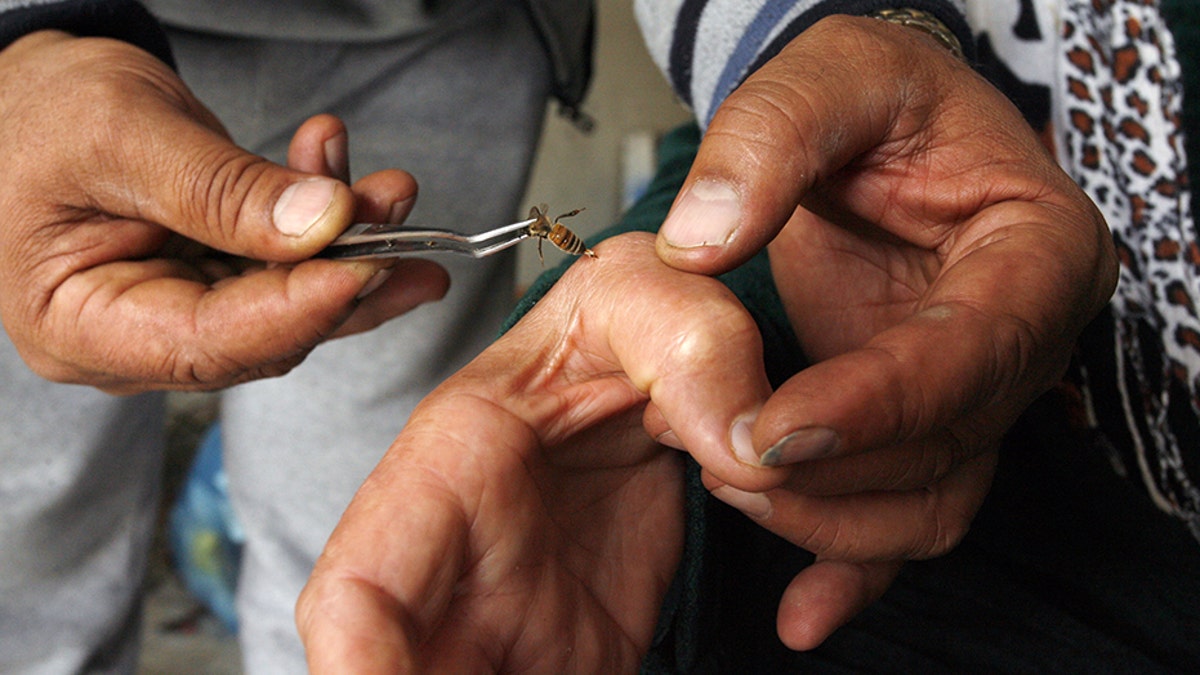
According to the American Apitherapy Society Inc., bee products "promote healing by improving circulation, decreasing inflammation, and stimulating a healthy immune response." The organization claims the treatment is effective for pain, wounds, gout, burns, tendonitis, infections and multiple sclerosis. (Courtesy: AFP/Getty Images)
A woman hoping to get the healing effects of "bee acupuncture" ended up dying from the treatment, SF Gate reported.
The 55-year-old Spaniard was getting "apitherapy," which the National Institute of Health describes as an alternative therapy used for pain relief.
The woman had been undergoing treatment for stress and muscle tightness once a month for two years, when she had a violent reaction during a session.
According to a report published in the Journal of Investigational Allergology and Clinical Immunology, the woman’s breathing became labored and she lost consciousness right after receiving a live bee sting.
STING LIKE A BEE: ALTERNATIVE THERAPY IN GAZA
The report pointed out the ambulance took a while to arrive, so “the patient waited 30 minutes before receiving intramuscular adrenaline.”
The woman died of multiple organ failure weeks later.
According to the journal report, the patient suffered a "massive watershed stroke and permanent coma" due to persistent hypotension stemming from her severe anaphylactic episode.”
The study noted that this is the first reported death from the bee venom therapy “due to complications of severe anaphylaxis in a confirmed sensitized patient who was previously tolerant.”
The doctors conclude that live bee sting treatments are "both unsafe and unadvisable."
According to the American Apitherapy Society Inc., the therapy is helpful in treating pain, wounds, gout, burns, tendonitis, infections and multiple sclerosis.
KILLER BEE ATTACK SENDS A.J. FOYT TO THE HOSPITAL
The ancient therapy is practiced all over the world. Even celebrities like Gwyneth Paltrow have reportedly touted the benefits of the allergen.
In a 2016 New York Times interview, Paltrow said, "It's a 1,000-year old treatment called apitherapy," she said. "People use it to get rid of inflammation and scarring. It's actually pretty incredible if you research it. But, man, it's painful."
The SF Gate report said that very few cases of allergic reactions to acupuncture have been reported, most stemming from regions where traditional medicine is widely practiced, such as China and Korea.








































